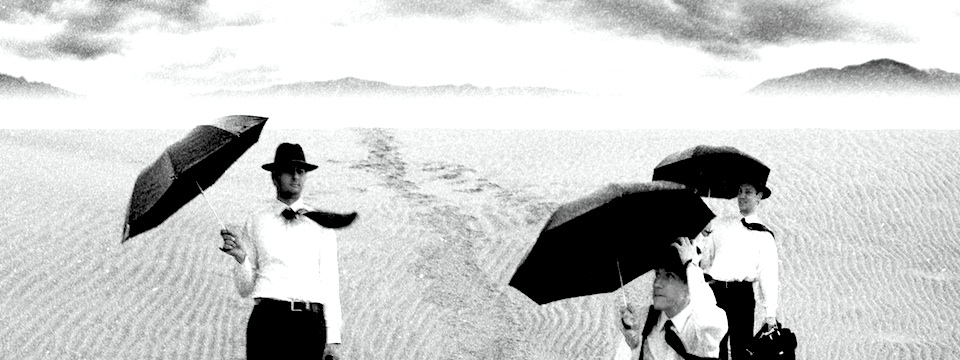It’s easy to discount all the things that are happening behind the scenes.
In our entertainment-based culture, we tend to only respect the final, glowing, sparkling, gleaming product, free from all blemishes and glitches. We airbrush our photos, we put 7 second time-delays on our “live” radio and television feeds, and we have dress rehearsals for our church services. We want our news packaged into headlines, simple soundbytes to consume or discard. We want our politicians in suits and ties, not gym clothes.
Anymore, there have almost become two strictly dichotomized worlds: one for presentation, and one for preparation. Everyday Life has become a TV show.
But behind the scenes… that’s where the magic happens.
I just finished reading Malcom Gladwell’s glorious book “The Tipping Point” in which he describes how relatively small things have a tremendous impact in “tipping” social epidemics, from fashion to education to crime. In the first section he describes The Law Of The Few, where a relatively small number of extraordinary people are crucial to kickstarting an epidemic. But I’m starting to wonder if it’s those select few, those people that fit into some kind of “behind the scenes” Social or Informational Aristocracy, that actually do most of the world’s work, period.
When I originally came up with the “behind the scenes” idea for this post, I wanted to write about what I find to be an utterly demoralizing disconnection between how “the masses” seem to perceive reality and what I’d consider to be “actual reality.” I am often frustrated by how so many people can be so infinitely clueless as to what’s going on in the world around them.
Ever met some of these folks?
But I don’t feel like the gap can be attributed simply to an lack of intelligence; in fact, I think the problem is mostly 1) a shortage of ability to manage one’s own life or 2) sheer laziness (or a combination of both).
I know that last little rant can make me sound a bit condescending, but actually, I bring this up because I know that people can change. If you want to learn to manage your life, do it. If you want to stop being lazy, do it. Also, I know discussions like this can make me sound like some kind of elitist, but I am not talking about human value, I am talking about human productivity, and that’s an important distinction.
No matter the reason, the reality is that it’s really just a numbers game. At the end of the day, most people are responders, not innovators. We can talk in terms of Rogers’ Diffusion of Innovation bell curve, of innovators-to-laggards, if you like… same thing. Here’s a nice epidemiology diagram, for your visual jollity:

You can see the “learning curve” that sweeps upward and which, by the end, represents the nearly complete diffusion of the phenomena in question. (Everyone feels more intelligent when discussing sociology with big words.)
What I know is that there are all of these “things” happening out there in the world: from food crises to economic crises to violent military crises, and most people are content — happier, even — knowing that they won’t every have to touch these problems with a 30-foot-stick if they don’t want to. But for me, these realities hit me like a branch in the face. For me, it means that someone else is controlling my life — or at least “pulling the strings” and directing aspects of the world I interact in.
And I’m not a big fan of that.
If you’ve read Gladwell’s book and buy what he says, you simply can’t get around the concept that, in terms of “phenomena tipping” at least, some people are simply more important than others. What I wonder is if this mystery also extends into the world’s productivity.
Are there a select few people pulling the majority of the weight? Does the 80/20 rule apply here? Are 20% of the world’s population doing 80% of the work?
Is there any way to tell?
//


4 Comments
m
in response to your question “Are there a select few people pulling the majority of the weight?” i would say that the answer is ‘yes and no.’
yes, 20% of the world is doing the innovating.
no, this is not a conspiracy.
the 20% changes, it’s not always the same 20% yielding the 80%. this group changes with geography, time, markets, and really, any other factor you would like to consider.
the world is so absolutely compartmentalized that it would be impossible to say that the same 20% are always yielding the 80% productivity. but at any given moment, in any given circumstance, 20% of us are the “influencers” and the people that are said to be influential, aren’t. the instant that anyone is regarded as influential (at least most of the time) it is because the “laggards” have finally caught up, but behold, a new influencer is at work and this person is unknown and may never be known.
and thus is matthew’s take on global trends…
-m
josh Allan
Yes, I like your idea that the people within the 20% shift… that’s a cool thought. You may just be right!
Have you read The Tipping Point yet?
I am realizing we haven’t spoken since your trip to my desert; perhaps you could ring me on the telephono someday, yes?
John Adams
Very true. Why do you think I enjoy being in the “behind-the-scenes” areas? Behind the scenes, you are the wizard…making the fire and the voice sound magnificent. Then someone pulls back the curtain…oh well! =)